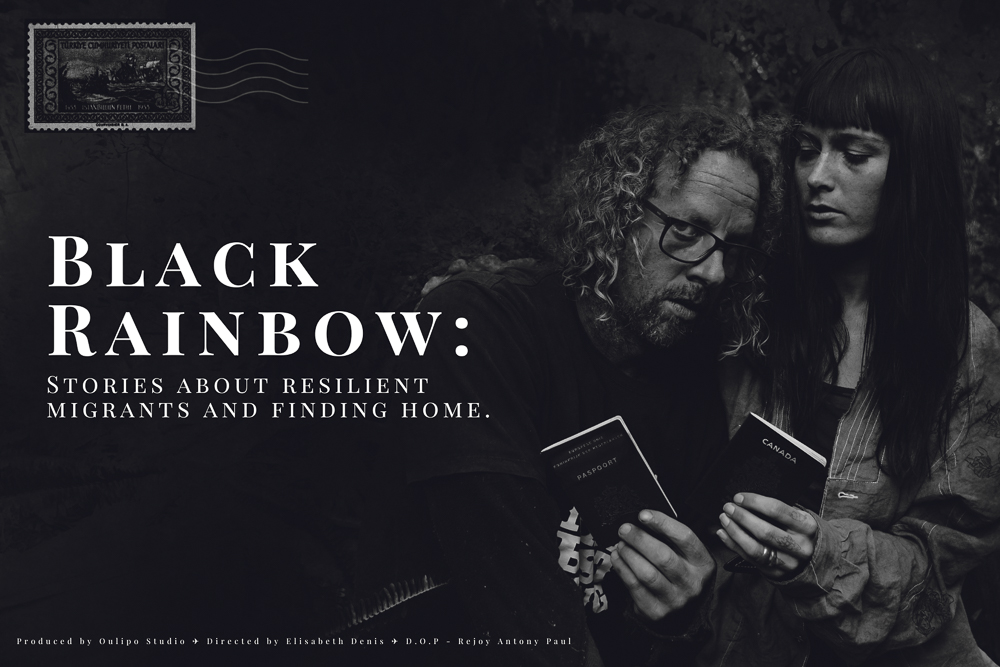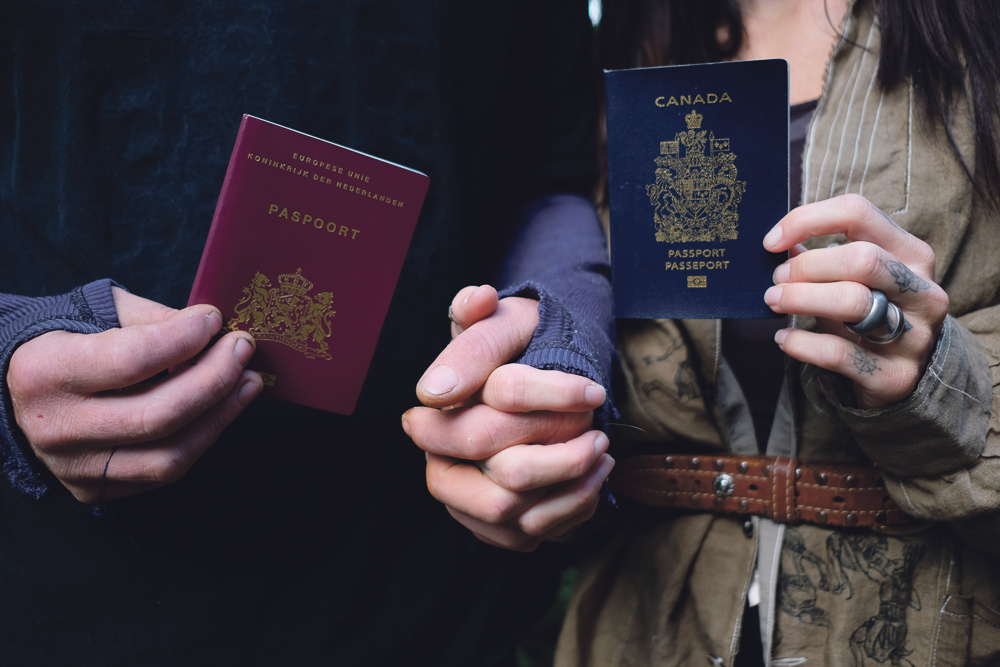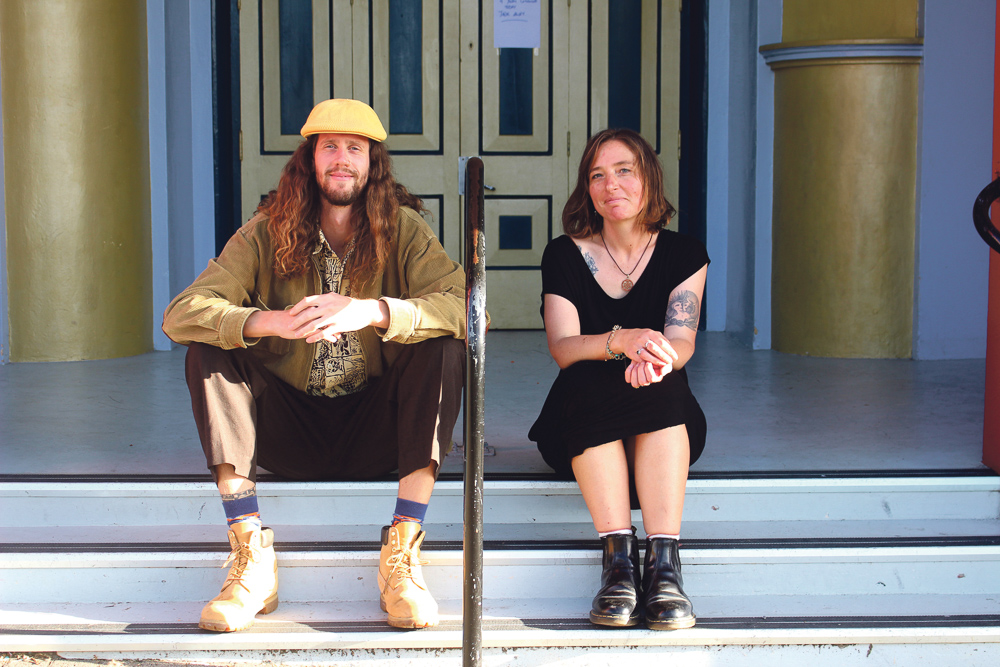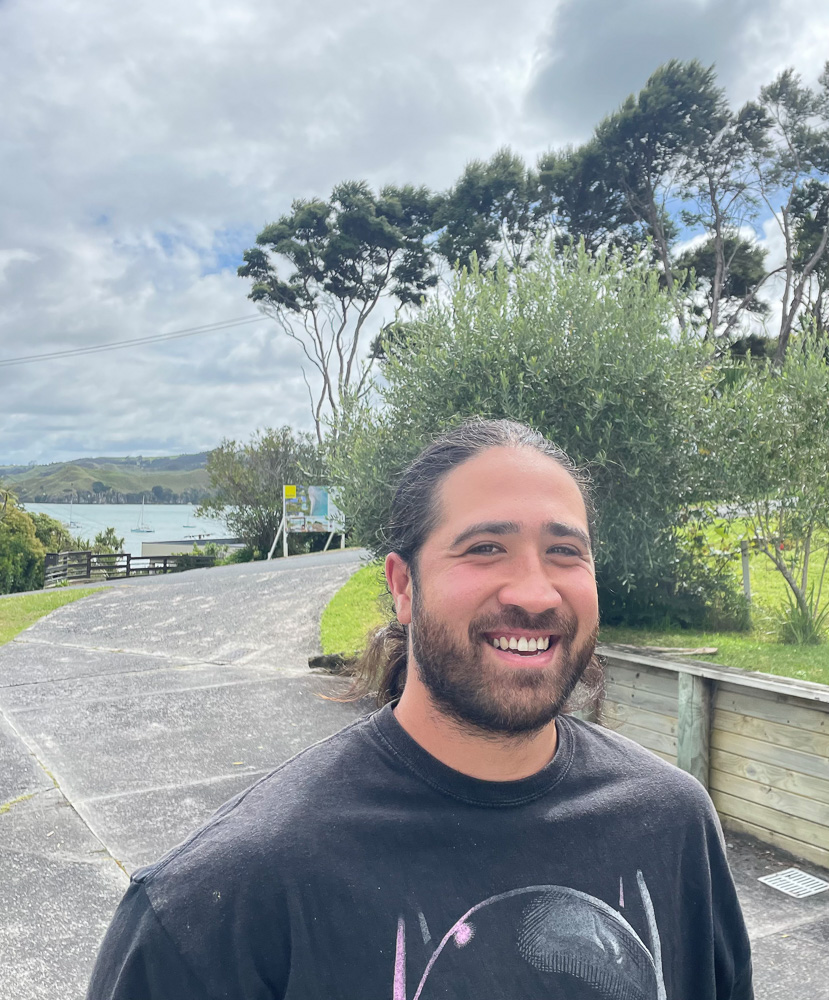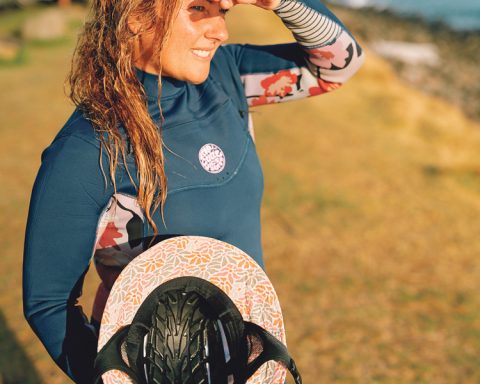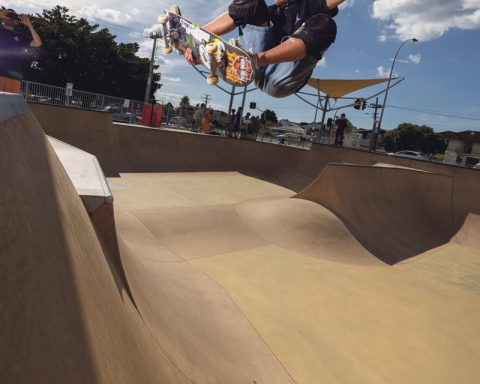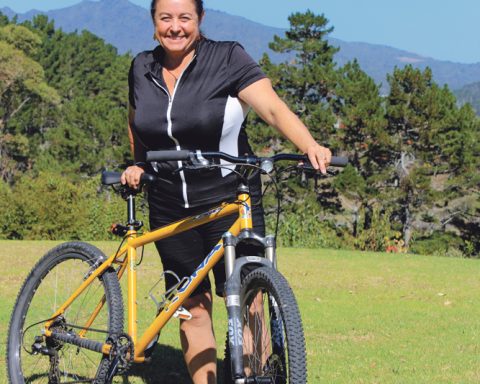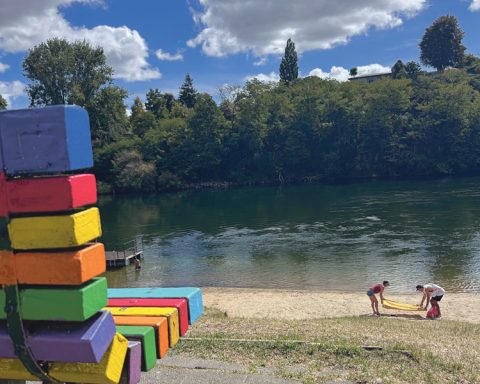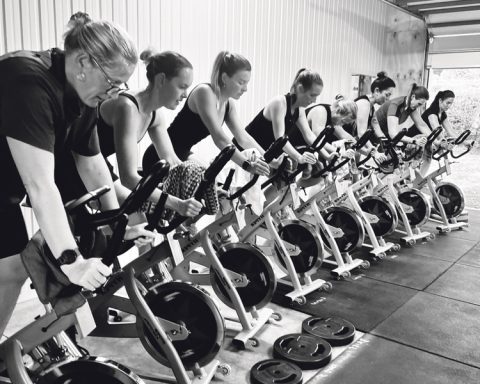Migration is one of the most important, multifaceted, and sometimes controversial issues of our time, and films are a great way to delve deeper into these topics and engage people in open dialogue. There is a link between migration and mental health, and film director Elisabeth Denis wants to talk about it.
How would you describe your work as an artist?
I am a French-Canadian interdisciplinary artist whose tools to tell stories usually bifurcate towards filmmaking and literature. I am interested in relational aesthetics, confessional writings, interactive installations, community-oriented projects, and political and social art. My method of work often starts with a seed that is present and found in my own life, a concern, or social questions. Detective-like, I then interrogate people to integrate their story or their thoughts to my work. None of my projects would have been possible and viable without the participation of the public offering themselves in a vulnerable and open state of mind. The public always acts as a reflection for my own concerns.
What has inspired you to produce this particular documentary?
The seed of this project started with my own journey as a migrant. I came across a few situations that were very difficult to deal with during the process of immigrating, which left me in a difficult mental state at the time. I became pregnant and miscarried while I was waiting for my partner visa and I felt unsupported by the current system even though at that point I had been in the country for about 4 years, working, paying taxes, and contributing to my community and the land I walked on daily. This is only a slice of my story, the rest will be told in the documentary. Raglan is a melting pot of immigrants, and so let me tell you, the immigration stories I’ve heard here are countless. It is time to create a space for those stories to be told. Individuals have agreed to share their experiences, some while remaining anonymous in order to protect their privacy; others are willing to reveal their identity.
The current global estimate is that there were around 281 million international migrants in the world in 2020, which equates to 3.6 per cent of the global population. The 2018 NZ census showed that 27.4 %of people counted were not born in New Zealand, up from 25.2 percent in 2013.
I wish to produce a documentary about gently unearthing the untold stories of migrants in New Zealand. Telling the story of migrants, collectively, aims to bring awareness to what migration can be like in the eyes of someone who did not experience it. Other migrants can relate by recognizing similarities in their own story. This is a safe space for migrants to be heard and seen.
Who have you involved to tell the story and start the open dialogue on this subject?
Individuals in the Waikato who are still in the process of migrating, and others who have received their residency will be interviewed: families, couples on partner visas, work sponsored individuals, migrants who are artists, refugees, immigration lawyers, immigration officers, a member of the Green Party (Ricardo March), a psychologist, and immigration advisers. The origin and age group of each person or group interviewed will differ in order to get a broad kaleidoscope view of as many scenarios as possible.
What is your background in film making?
My film Anthropomorphism won an award for ‘best documentary’ at Raglan Film Festival in 2019, and another film Cold-Blooded-Dermatopograhic-Locutions won the second place in the ‘open category’ in 2022.
In the past you have directed, edited, produced, acted and created music and sounds for your films. But this time you want to work alongside others including photographer and filmmaker Rejoy Antony Paul, who is also a migrant. What do you need to make this happen?
There is so much more fulfilment in creating collectively and going on a journey with a crew that are well looked after financially.
It is the first time that I’m asking for financial support in order to produce a film, this documentary. The reason being that due to my current visa status (temporary resident), I am unable to apply for any creative funds. The requirement is that everyone included in a creative project must be a permanent resident or citizen. The funds will be used to support the crew financially in order to produce the documentary: the D.O.P, the director, the editor, the 3D animator.
This is the link for anyone who wishes to donate. There are 19 days left to contribute, I am at 40% of my goal… https://www.boosted.org.nz/projects/black-rainbow
During the post production phase, Elisabeth created a trailer with Antony Rejoy Paul, Armin Schmidt, Arshan Gill, Marten Ten Broek and Jose G Cano to act as a taste of her vision and aesthetic style, a taste of what is yet to be produced. Watch it here: https://www.youtube.com/watch?v=SnkffumfheU
For anyone who is a migrant and has an untold immigration story to tell someone who is interested, to participate in the documentary, please email : theoulipostudio@gmail.com
with Elisabeth Denis
